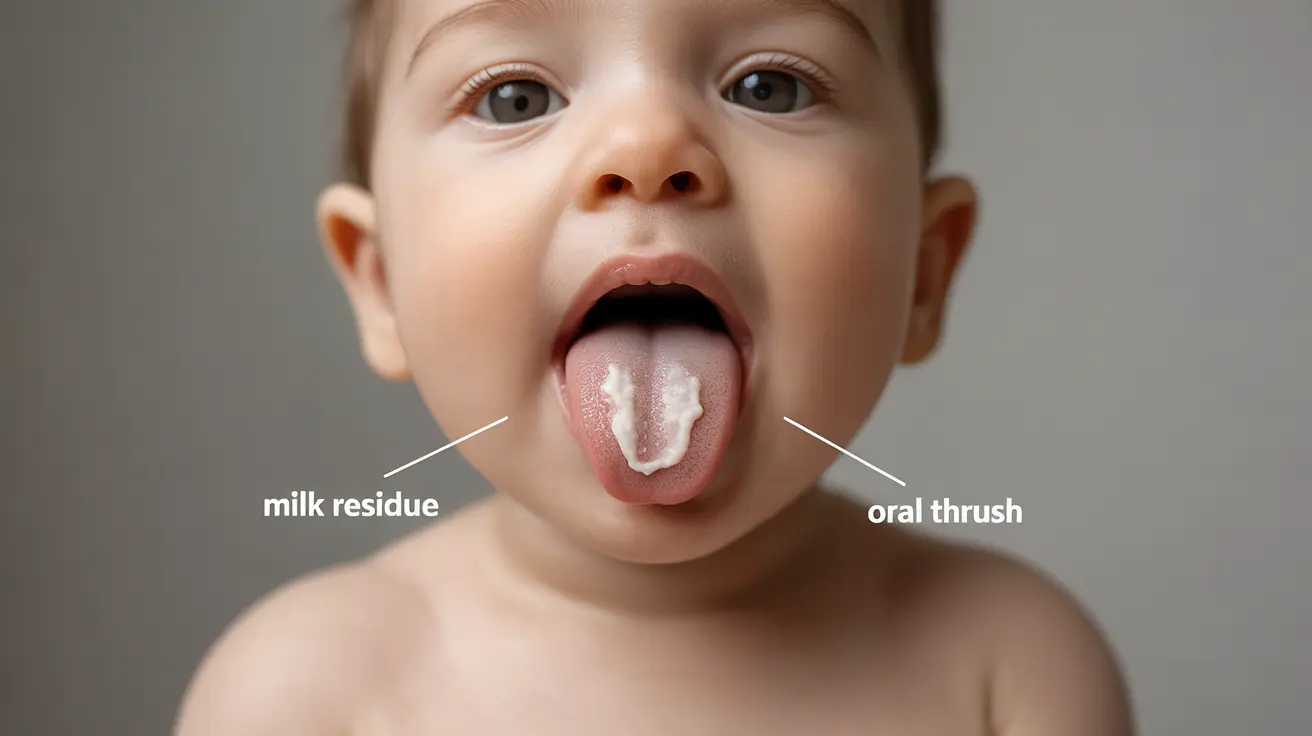As a parent, noticing a white coating on your baby's tongue can be concerning. This common occurrence can have several causes, ranging from harmless milk residue to oral thrush, a fungal infection. Understanding the difference and knowing when to seek medical attention is crucial for your baby's oral health.
In this comprehensive guide, we'll explore the various causes of white tongue in babies, how to identify different conditions, and effective treatment options. We'll also discuss prevention strategies to keep your little one's mouth healthy.
Common Causes of White Tongue in Babies
Several factors can contribute to the appearance of a white tongue in infants:
Milk Residue
The most common and harmless cause is milk residue from feeding. This white coating typically disappears between feedings and can be gently wiped away with a soft, damp cloth.
Oral Thrush
A more persistent white coating might indicate oral thrush, a fungal infection caused by Candida albicans. This appears as thick, white patches that don't easily wipe away and may cause feeding discomfort.
Geographic Tongue
Less commonly, babies may develop geographic tongue, characterized by irregular, map-like patterns on the tongue's surface. This condition is usually harmless and doesn't require treatment.
Identifying Milk Residue vs. Oral Thrush
Distinguishing between milk residue and oral thrush is essential for proper treatment:
- Milk residue:
- Easily wipes away
- Disappears between feedings
- Doesn't cause discomfort
- Appears shortly after feeding
- Oral thrush signs:
- White patches that don't wipe off
- Cottage cheese-like appearance
- May cause feeding difficulties
- Can appear on cheeks and gums
Treatment Options for Oral Thrush
If your baby has oral thrush, several treatment approaches may be recommended:
Medical Treatments
Antifungal medications prescribed by your pediatrician are the most effective treatment. These typically include oral suspensions or gels applied directly to the affected areas.
Supportive Care
During treatment, maintain good oral hygiene and sterilize feeding equipment to prevent reinfection. If breastfeeding, both mother and baby may need treatment to prevent passing the infection back and forth.
Prevention Strategies
To reduce the risk of oral thrush and maintain good oral health:
- Properly sterilize bottles and pacifiers
- Practice good oral hygiene
- Clean your baby's mouth after feedings
- Maintain good hygiene while breastfeeding
- Keep your baby's immune system strong through proper nutrition
Frequently Asked Questions
What are the common causes of a white tongue in babies? The most common causes are milk residue from feeding and oral thrush. While milk residue is harmless and temporary, oral thrush is a fungal infection requiring medical treatment.
How can I tell if my baby's white tongue is due to milk residue or oral thrush? Milk residue easily wipes away and disappears between feedings. Oral thrush appears as persistent white patches that don't wipe off and may cause feeding discomfort.
What is the best way to treat oral thrush in babies? The most effective treatment is prescription antifungal medication from your pediatrician. This may come in the form of oral drops or gel applications.
Are there any home remedies or natural treatments for oral thrush in infants that are safe? While medical treatment is necessary, supporting measures include proper hygiene, sterilizing feeding equipment, and maintaining a clean feeding environment. Always consult your healthcare provider before trying any home remedies.
How can I prevent oral thrush from recurring in my baby? Prevention includes regular sterilization of feeding equipment, maintaining good oral hygiene, proper breast hygiene while nursing, and promptly treating any recurring symptoms.




